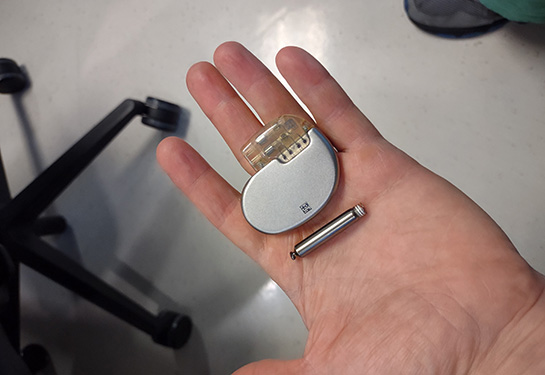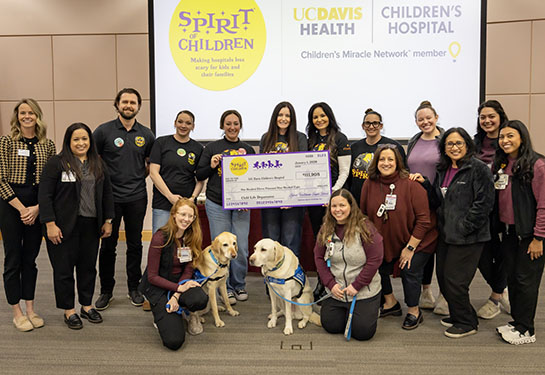Intestinal rehabilitation program helps patients with short bowel syndrome
Everley Saelee was born at 27 weeks gestation and battled a serious intestinal disease that affects one in 1,000 premature babies and can lead to death.
The disease, necrotizing enterocolitis (NEC), occurs when the intestine is invaded by bacteria and its tissues die.
Surgery at UC Davis Children’s Hospital was performed to remove the dead part of her intestine, which led to short bowel syndrome, a condition in which the intestine can’t break down and absorb nutrients from food properly. About 20,000 people in the U.S. have short bowel syndrome.
The intestinal rehabilitation program at UC Davis works with patients like Everley to ensure they get the nutrition needed for growth and development. The program also helps promote growth and adaptation in the remaining intestine.
Since 2015, UC Davis Children’s Hospital has been offering an intestinal rehabilitation program led by a team of pediatric GI physicians. The program has recently expanded to include a dedicated clinical nurse practitioner, two pediatric home health nurses, two dietitians and a social worker.
“This is truly a comprehensive multidisciplinary team that is unique to the Central Valley and Northern California,” said Kelly Haas, pediatric gastroenterologist at UC Davis Children’s Hospital.”We continue to grow the number of patients we are able to serve.”
Children with short bowel syndrome have difficulty absorbing calories, nutrients and water from food and fluids. In Everly’s case, her providers recommended total parenteral nutrition (TPN), rather than feedings by mouth.
TPN provides fluids intravenously bypassing the GI tract. TPN requires a solution of water, amino acids, essential fatty acids, vitamins and minerals to provide the total nutrition needs of a baby.
“Taking care of TPN-dependent kids is probably the most labor intensive and potentially risky of all the kids we care for in pediatric GI,” Haas said. “They require enormous attention to detail as their TPN fluid is updated at least weekly.”
The program has also developed an education program for parents of short bowel syndrome and TPN-dependent children. The program teaches parents how to care for their children at home after being discharged from the hospital.
In Sacramento, two UC Davis pediatric home health nurses make home visits to help pediatric patients with short bowel syndrome.
For children who live in the 33-county coverage area that UC Davis Health serves, the team finds pediatric home health care providers in their areas or equips families for success at home through education and training.
“Our inpatient and outpatient pediatric GI teams coordinate to make sure we have a seamless transition of care,” Haas said.
Everley was able to end TPN and move to a combination of oral and tube feedings before leaving the hospital.
Our experience with the Pediatric GI Intestinal Rehabilitation Program was more than amazing! I thank the program for saving my daughter’s life—Everly’s mother, Brenda Saechao
“Our experience with the Pediatric GI intestinal Rehabilitation Program was more than amazing! I thank the program for saving my daughter’s life,” said Everly’s mother, Brenda Saechao. “The program really educated me and opened my eyes. But most importantly, the amazing team behind it made Everley’s story such a success. The expertise of all the doctors, nurse practitioners and nurses made it happen.”
Everley has been home for three months now, after spending 165 days in the hospital.
“Everley has been thriving and growing every single day,” Saechao said. “She is such a true fighter. Because of this team, my daughter has a bright future ahead of her.”





